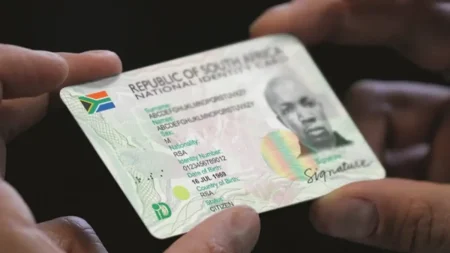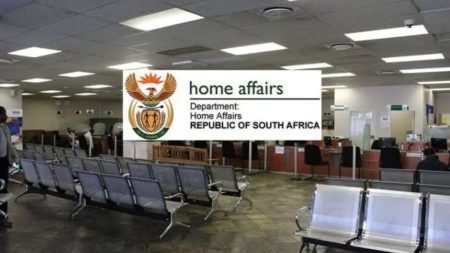The Road Accident Fund (RAF) is South Africa’s statutory insurer for road accident victims, funded through the national fuel levy. Its purpose is to compensate people injured in motor vehicle accidents and dependants of those who lost their lives.
Medical costs are among the biggest financial burdens after an accident. The RAF’s role is to ensure that victims are not bankrupted by hospital stays, surgeries, or long-term therapy. In 2026, the scope of RAF’s medical coverage remains based on legislation, court rulings, and established processes, with adjustments reflecting inflation and healthcare costs.
Past Medical Expenses: Reimbursement of Costs Already Incurred
Past medical expenses refer to bills already settled by the claimant or by a medical aid before the RAF claim is finalised. These include:
Emergency hospital admissions and ICU stays
Surgeries and follow-up operations
Diagnostic tests such as MRIs, CT scans, and X-rays
Consultations with specialists or general practitioners
Prescribed medicines and wound care supplies
Rehabilitation sessions such as physiotherapy
If these costs were covered upfront by the claimant’s medical aid scheme, RAF is legally required to reimburse the scheme or the claimant once the claim is resolved.
Court Rulings Reinforcing Reimbursement
Two landmark decisions strengthened this obligation:
In 2022, the High Court ruled RAF must repay medical schemes that covered accident-related bills.
In 2023, the Constitutional Court upheld this decision, ensuring equal treatment for claimants with or without medical aid.
Example: If your medical aid pays R150,000 for emergency surgery, RAF reimburses the scheme or pays you directly if you covered the expense.
Future Medical Expenses: Long-Term Care and Undertakings
Many accident victims require treatment that extends years into the future. The RAF covers these future medical expenses, which may include:
Additional surgeries expected later in life
Long-term medication for chronic conditions resulting from injuries
Ongoing rehabilitation such as physiotherapy, occupational therapy, or speech therapy
Long-term nursing or residential care
The Undertaking Certificate
Instead of paying out a lump sum, RAF often issues an undertaking certificate. This legal commitment guarantees that future medical costs will be covered as they arise, provided they are directly related to the accident injuries.
Court Precedents
Courts have awarded significant damages for future medical needs. In one case, a claimant received R4.7 million for loss of earnings and general damages, along with an undertaking certificate ensuring full coverage for ongoing hospitalisation and treatment.
Actuarial Assessments
Future expenses are calculated by actuaries, who consider:
The claimant’s age and life expectancy
Severity of injuries and expected deterioration
Healthcare inflation trends
Frequency and type of anticipated treatments
Related Medical Costs Covered
The RAF also pays for costs that fall outside of hospital or doctor’s bills but are necessary for recovery and independence. These include:
Assistive devices such as wheelchairs, prosthetics, or walking aids
Modifications to homes or vehicles, such as ramps or hand controls
Transport costs for medical appointments, including ambulance services or fuel reimbursements
Therapy beyond medical treatment, including occupational or psychological counselling
This ensures that accident victims not only survive but also regain functionality and dignity in daily life.
Key Considerations for 2026
There are several important points to keep in mind about RAF medical coverage in 2026:
Equal access for all claimants: RAF cannot deny claims simply because medical aid initially paid for the treatment.
Tariffs and private healthcare: Attempts to impose capped tariffs in 2022 were struck down, meaning RAF must cover actual medical costs, including private hospital fees.
Claim values: According to Road Accident Fund’s 2022/2023 Annual Report, the average claim value was R261,721. By the first quarter of 2025, medical compensation reached R1.7 billion. Figures in 2026 are expected to be higher due to inflation.
Inflation impact: Rising medical costs mean payouts continue to increase annually.
Limitations and Challenges in RAF Medical Claims
Despite its importance, medical claims are not without challenges:
Delays: Claims can take years due to backlogs.
Documentation requirements: Missing or incomplete records often cause rejection or delay.
Caps on related claims: While medical costs are not capped, loss of earnings and support are subject to annual limits, indirectly reducing overall compensation.
Proof of causation: Claimants must prove the medical expenses are directly linked to the accident injuries.
What RAF Does Not Cover
To avoid disputes, claimants should understand the Road Accident Fund’s exclusions. These include:
Pre-existing conditions not caused by the accident
Cosmetic or elective procedures
Experimental treatments not medically recognised
Non-essential luxuries such as hotel accommodation during treatment
Practical Steps for Claimants in 2026
For a smoother claims process, accident victims should:
Collect all invoices, receipts, and medical aid statements related to treatment.
Complete the RAF1 claim form and submit supporting medical records.
Request an undertaking certificate for long-term care needs.
Consult an RAF attorney, often on a no-win-no-fee basis, to manage the process.
Contact RAF through its official support channels:
Phone: 087 820 1111
WhatsApp: 071 605 4707
Email: contactcentre@raf.co.za
Tip: RAF Forms Checklist for 2025
Tips to Speed Up Medical Claims
Keep a well-organised digital file of all expenses and medical reports.
Use accredited healthcare providers recognised by RAF.
Always request detailed invoices specifying treatment codes.
Submit claims as early as possible to avoid statutory time-bar deadlines.
Seek professional legal advice to ensure claims include all eligible costs.
Pro Tip: Keep both printed and digital copies of your medical records to prevent disputes over missing documents.
Check also: RAF Claim Checklist: What You Need Before Submitting Your Application
The Road Accident Fund remains a vital safety net for South Africans injured in road accidents. In 2026, it continues to cover:
Past medical expenses such as surgeries and rehabilitation
Future medical needs under undertaking certificates
Related expenses including assistive devices, transport, and home adjustments
Although challenges like delays and documentation hurdles remain, the RAF provides essential protection against financial ruin caused by medical bills.
If you or a loved one are involved in a road accident, knowing your rights under RAF coverage is crucial. Keep thorough records, seek legal support, and ensure you claim every eligible expense.










